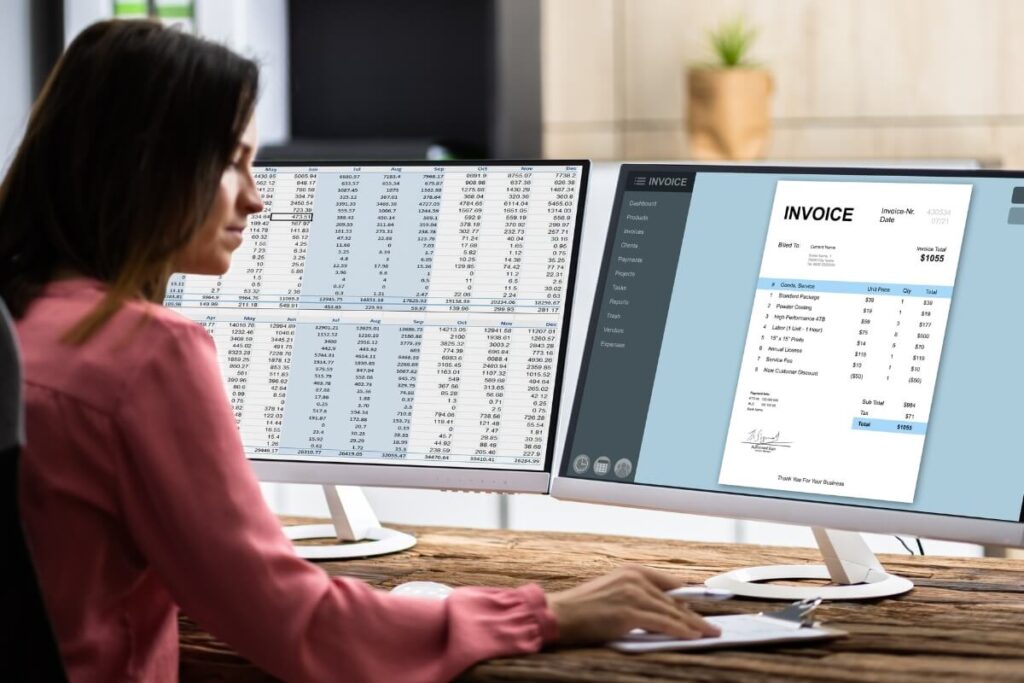
International business requires more than just a solid strategy—it demands the right tools to manage financial operations across multiple countries. As businesses expand globally, the need for accounting software that can handle diverse currencies, tax regulations, and reporting requirements has never been greater.
Staying ahead means choosing a solution that not only meets your current needs but also adapts to the challenges of a global market. Whether you’re a small startup expanding into new territories or a large enterprise managing operations in multiple countries, the right international accounting software is crucial for your success.
Contents:
- Difference between standard and international accounting software
- How to Choose Your International Accounting Solution
- 11 Best International Accounting Platforms in 2024
- Accounting Solutions for Global Expansion
What is the difference between standard accounting systems and international accounting software?
When managing a business that operates across borders, the demands on your accounting software are far more complex than those of a standard, domestic operation. Standard accounting systems are designed to handle the financial needs of a single market, typically focusing on local currency, tax regulations, and reporting requirements. While these systems are effective for domestic businesses, they can quickly become a limitation when your company starts to operate internationally.
Standard Accounting Systems are typically designed for:
- Local Currency: Handling transactions in a single currency.
- Domestic Tax Compliance: Managing tax calculations and filings based on local laws.
- Basic Reporting: Generating financial statements that comply with national regulations.
- Limited Scalability: Serving the needs of small to medium-sized businesses within one country.
On the other hand, International Accounting Software is built to manage the complexities of operating in multiple countries. These platforms offer advanced features that go beyond the capabilities of standard systems, making them essential for businesses looking to expand or operate globally.
International Accounting Software typically includes:
- Multi-Currency Support: Automatically handles transactions in multiple currencies, including real-time exchange rates.
- Global Tax Compliance: Manages tax regulations for various countries, ensuring compliance with different legal requirements.
- Consolidated Reporting: Provides financial reports that integrate data across multiple jurisdictions, offering a clear, unified view of your global operations.
- Localization Features: Customizes functions to meet the specific accounting standards and legal requirements of each country you operate in.
- Scalability: Supports the growth of your business by easily accommodating additional countries, currencies, and users.
Key Differences:
- Scope: Standard systems focus on a single market, while international systems manage multiple markets seamlessly.
- Complexity: International software handles diverse tax laws, currencies, and reporting requirements that standard systems can’t manage.
- Functionality: International platforms offer advanced features like multi-currency support, global tax compliance, and consolidated reporting, making them essential for international business operations.
If your business operates or plans to operate internationally, investing in international accounting software is crucial. These systems are designed to handle the complexities of global business, providing the tools needed to manage financial operations across borders efficiently.

How to Choose Your International Accounting Solution
Selecting the right international accounting software is crucial for managing the complexities of global business operations. With numerous options available, it’s important to focus on key factors that align with your business needs and growth strategy. Here’s what to consider when choosing the best solution for your company:
1. Multi-Currency Management
- Why It Matters: Your software must be capable of handling transactions in multiple currencies, including real-time exchange rates and currency conversions. This feature is essential for businesses operating across borders to ensure accurate financial reporting and compliance.
- What to Look For: Look for software that seamlessly manages multi-currency transactions, adjusts for exchange rate fluctuations, and integrates these into your financial statements.
2. Global Tax Compliance
- Why It Matters: Each country has its own set of tax regulations, which can be complex and constantly changing. Your software needs to handle these variations to ensure compliance and avoid costly penalties.
- What to Look For: Choose a platform with robust tax management features that support multiple jurisdictions, automatically calculate taxes, and stay updated with the latest regulatory changes.
3. Consolidated Financial Reporting
- Why It Matters: If you’re managing subsidiaries or operations in multiple countries, you need consolidated financial reports that provide a clear overview of your global financial health.
- What to Look For: Go for software that offers powerful reporting tools, allowing you to consolidate data from various regions and present it in a unified format for easy analysis.
4. Compliance with International Accounting Standards (IAS/IFRS)
- Why It Matters: For businesses operating across multiple jurisdictions, compliance with International Accounting Standards (IAS) and International Financial Reporting Standards (IFRS) is essential. These standards ensure that your financial reporting is consistent, transparent, and comparable across borders.
- What to Look For: Select software that supports IAS/IFRS compliance, offering tools to manage and report financial data in line with these international standards, ensuring that your financial statements meet global expectations.
5. Scalability
- Why It Matters: As your business grows, your accounting software should be able to scale with you. Whether expanding into new markets or increasing transaction volumes, your software needs to accommodate growth without losing efficiency.
- What to Look For: Select a solution that offers flexible scalability, from adding new users to expanding into additional countries, without compromising performance.
6. Localization and Customization
- Why It Matters: Different countries have unique accounting practices and regulatory requirements. Your software should adapt to these local needs to ensure smooth operations in each market.
- What to Look For: Look for software that allows localization for different markets, including language support, local tax laws, and customized financial reporting templates.

7. Ease of Integration
- Why It Matters: Your international accounting software should work seamlessly with your existing systems, such as ERP, CRM, and payroll systems, to ensure smooth data flow across your business.
- What to Look For: Ensure the software integrates well with other tools your business uses, offering APIs or pre-built integrations that simplify the process.
8. User Experience and Support
- Why It Matters: A user-friendly interface and reliable customer support are critical for efficient operations. Your team should be able to navigate the software easily, and you should have access to responsive support when needed.
- What to Look For: Choose software known for its intuitive design and strong customer support, including training resources and 24/7 assistance.
9. Security
- Why It Matters: Handling sensitive financial data across borders requires robust security measures to protect against breaches and ensure compliance with international data protection regulations.
- What to Look For: Prioritize software with advanced security features, including encryption, secure data centers, and compliance with global security standards.
10. Cost and ROI
- Why It Matters: While it’s important to stay within budget, consider the long-term value of your software investment. The right solution can save time, reduce errors, and enhance your global operations.
- What to Look For: Assess the total cost of ownership, including subscription fees, implementation costs, and ongoing support, and weigh this against the potential ROI your business will gain.
Choosing the right international accounting software is a strategic decision that can significantly impact your business’s success in global markets. By focusing on these key factors, you can find a solution that not only meets your current needs but also supports your future growth.

11 Best International Accounting Platforms in 2024
1. NetSuite ERP
Overview: NetSuite ERP is a powerful, cloud-based accounting solution that offers a full suite of tools for international businesses. Known for its scalability and comprehensive feature set, it’s ideal for growing companies managing global operations.
Key Features:
- Advanced multi-currency support and automated tax compliance.
- Real-time global financial reporting and consolidation.
- Extensive integration options with other business systems.
- Strong support for multi-subsidiary management.
2. Xero
Overview: Xero is a user-friendly cloud accounting software, perfect for small to medium-sized businesses with international operations. Its simplicity and efficiency have made it a popular choice.
Key Features:
- Multi-currency accounting with automatic currency conversions.
- Easy-to-use interface with a wide range of integrations.
- Robust invoicing and expense management tools.
- Regular updates and strong customer support.
3. QuickBooks Online
Overview: QuickBooks Online is a versatile accounting platform, widely used by small businesses. It’s especially suited for companies that require simple, effective accounting tools for international operations.
Key Features:
- Multi-currency support and automatic exchange rate updates.
- Strong tax management and reporting features.
- Comprehensive invoicing and expense tracking tools.
- Large ecosystem of third-party integrations.
4. Sage Intacct
Overview: Sage Intacct is a cloud-based accounting software known for its strong financial management capabilities. It’s designed for medium to large businesses needing detailed financial insights and reporting.
Key Features:
- Multi-currency and multi-entity management.
- Advanced financial reporting and analytics tools.
- Flexible API for custom integrations.
- Compliance with international accounting standards.
5. SAP Business One
Overview: SAP Business One is an integrated business management solution designed for small to midsize companies. It offers comprehensive tools for managing everything from accounting to inventory across global operations.
Key Features:
- Multi-currency and multi-language support.
- Integrated financial management and real-time reporting.
- Strong supply chain and inventory management tools.
- Customizable modules to fit specific business needs.
6. Microsoft Dynamics 365 Finance
Overview: Microsoft Dynamics 365 Finance is a robust ERP system that offers advanced financial management capabilities, ideal for large enterprises with global operations.
Key Features:
- Global financial reporting and multi-currency management.
- AI-driven insights and predictive analytics.
- Strong integration with other Microsoft products and services.
- Compliance with international accounting standards.
7. FreshBooks
Overview: FreshBooks is a cloud-based accounting solution that’s particularly popular among freelancers and small businesses. It offers a user-friendly interface and essential accounting features.
Key Features:
- Multi-currency invoicing and expense tracking.
- Simple, intuitive user interface.
- Strong customer support and frequent updates.
- Automated payment reminders and late fees.
8. Zoho Books
Overview: Zoho Books is part of the Zoho suite of business tools, offering robust accounting features suitable for small to medium-sized businesses.
Key Features:
- Multi-currency support and automatic bank feeds.
- Integrated with other Zoho apps for seamless business management.
- Affordable pricing with a range of features.
- Strong automation tools for invoicing and expense management.
9. Wave Accounting
Overview: Wave is a free accounting software solution ideal for small businesses and freelancers. Despite being free, it offers a solid set of features for managing international finances.
Key Features:
- Multi-currency invoicing and reporting.
- Free accounting and invoicing tools.
- Simple interface with essential features for small businesses.
- Paid add-ons for payroll and payment processing.
10. Odoo Accounting
Overview: Odoo is an open-source ERP system with a comprehensive accounting module. It’s suitable for businesses that need a customizable solution for international operations.
Key Features:
- Multi-currency support and global financial management.
- Customizable modules and open-source flexibility.
- Integrated with Odoo’s full suite of business apps.
- Strong reporting and analytics tools.
11. Acumatica Cloud ERP
Overview: Acumatica Cloud ERP is a robust business management solution that offers a comprehensive accounting module, ideal for growing businesses with international needs.
Key Features:
- Multi-currency and multi-entity support.
- Real-time financial reporting and dashboarding.
- Scalable cloud-based platform with strong integration capabilities.
- Flexible deployment options and mobile access.

Your Accounting Solution is Only One Part of the Global Expansion Challenge
As your business continues to grow and expand into new markets, having the right accounting software is essential to managing the complexities of international operations. The platforms we’ve highlighted offer powerful tools to streamline your financial processes, ensure compliance, and support your global ambitions.
However, software alone isn’t enough. Successfully navigating the complexities of global expansion requires a comprehensive strategy that addresses everything from local regulations to cultural nuances. While the right accounting platform is a critical component, it’s only a fraction of what your business needs to thrive internationally.
For a truly seamless expansion, you need a partner who understands the broader landscape. Reach out to weConnect today, and let us help you navigate the full spectrum of challenges that come with international growth. With our expertise, you can confidently take your business to new heights across the globe.